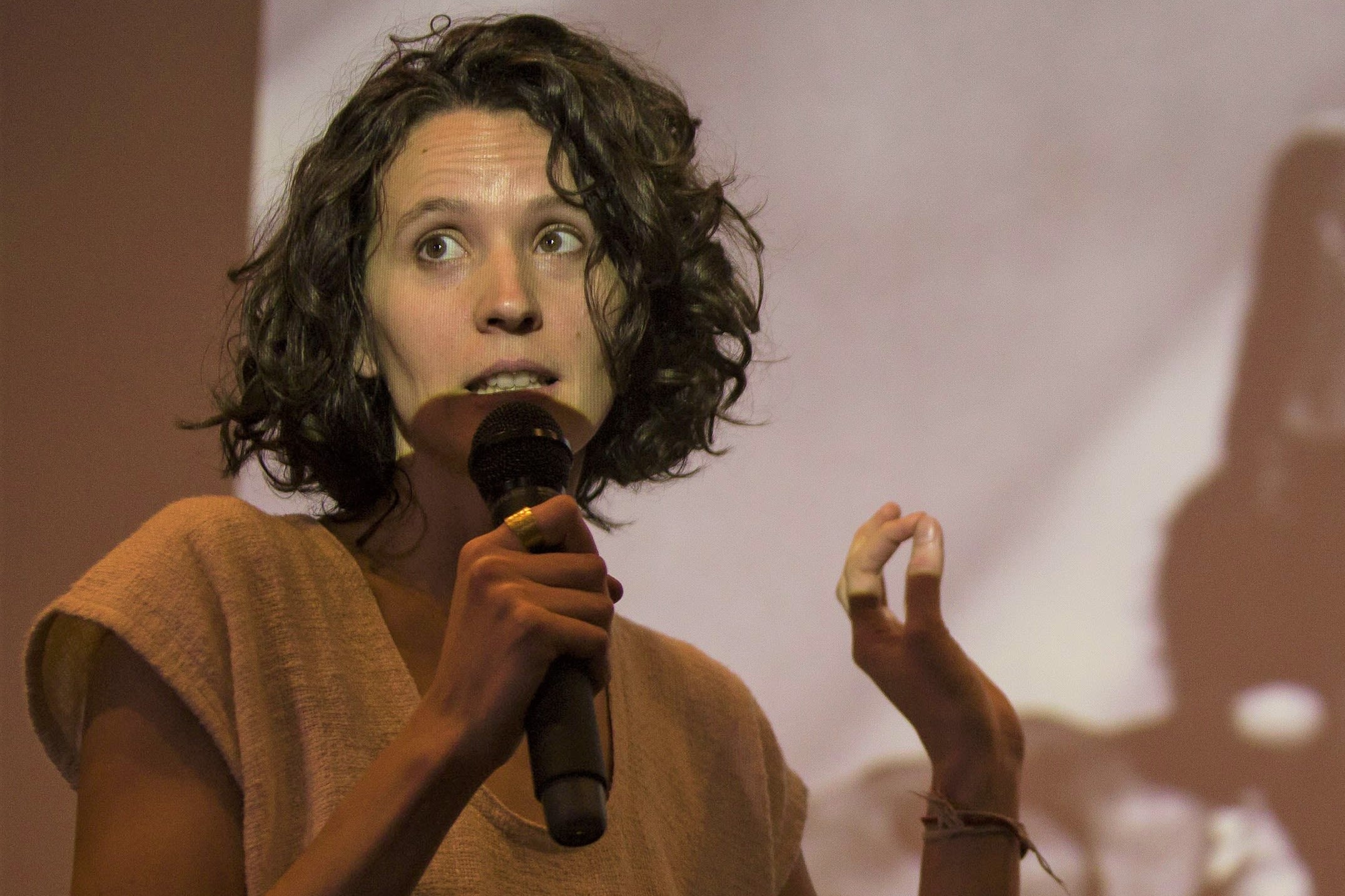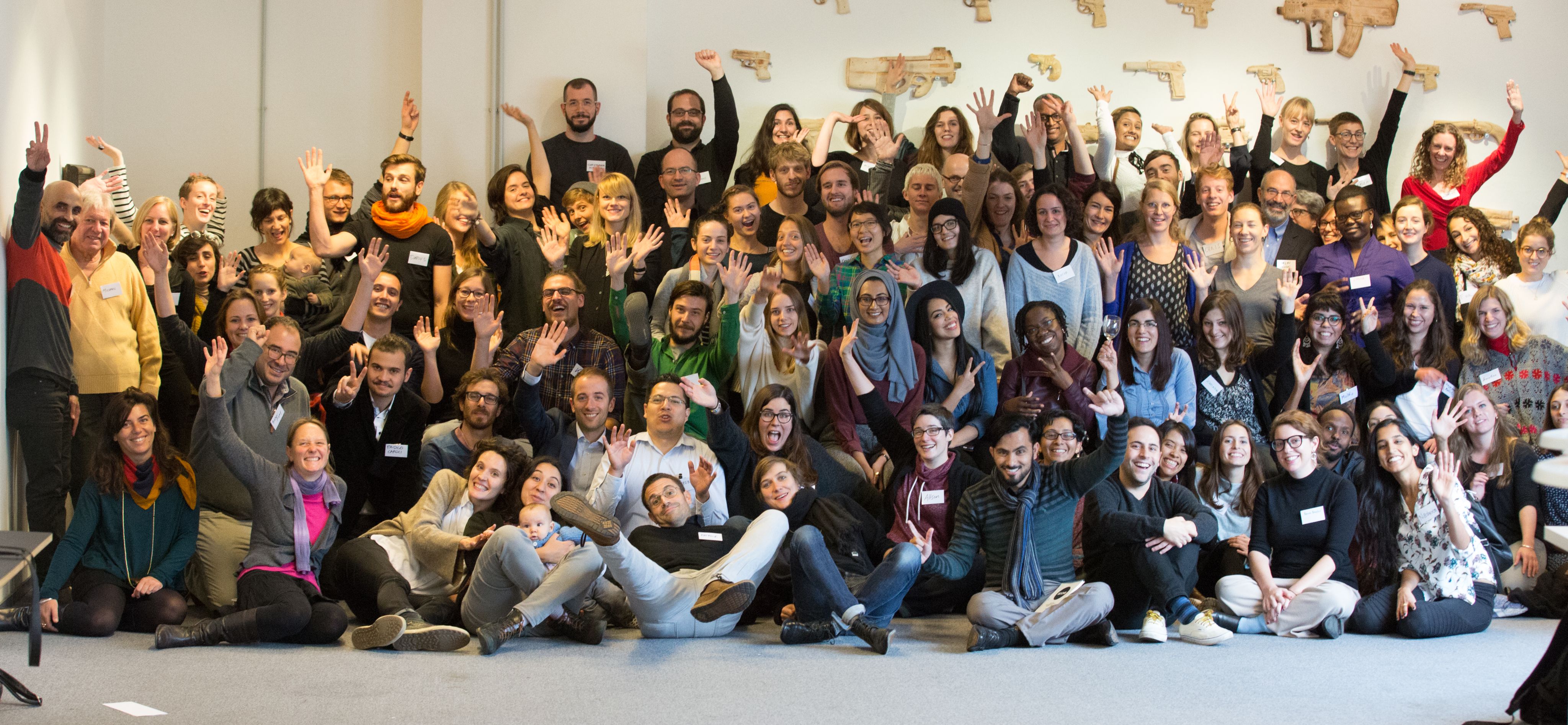HOW TO BERTHA FUND
The Bertha Funds have grown over the years from what we have learned through our relationships with those we support. We spoke to Claire Tixeire, a longtime Bertha friend and partner, to reflect on how the funds work in practice.
The first Bertha Fund came into existence only a few years after Bertha Foundation did, in 2013. The idea grew while CEO Laura Horwitz was interviewing other funders to see how Bertha could learn from their experiences and practices. It became clear during these discussions that checking in once a year to provide funding to an organization would be limiting for both Bertha and the organization. There were constant opportunities for connection, amplification and growth that were stymied because they weren’t budgeted for. The Impact Opportunity Fund was developed as an explicit and directed effort to provide financial resources to respond to unique, time-sensitive opportunities, but it also has provided a great way to stay in conversation with grantees and look for opportunities together. Within the context of relationship-based funding, the crux of the work wasn’t looking for a return on investment or rigid reporting, but rather looking for the agility to create spaces and opportunities to co-create, collaborate and amplify the work of grantees. At first, the Impact Opportunity Fund was only available to law partners and Fellows. Based on its success, it was quickly followed by the Activism and Media Impact Opportunity Funds. Just under 10 years later, there are seven ongoing Bertha Funds serving Bertha Fellows and grantees.

Bertha Justice Initiative Director Shveta Shah and Bertha’s Communications Coordinator Sammy Richards sat down with Claire Tixeire, senior legal advisor at the European Center for Constitutional and Human Rights (ECCHR), to find out more about the center’s experience with the Bertha Funds. Claire has been an active partner since the Bertha Justice Initiative began and ECCHR, one of Bertha’s longest law partners, has been using Bertha Funds since 2013. This is where our conversation with Claire begins:
From your perspective, how has ECCHR worked with the Bertha Funds?
We’ve used the Educational Exchange Fund and Impact Opportunity Fund in many ways, touching on our International Crimes and Accountability, Business and Human Rights and our Institute for Legal Interventions programs as well as for our critical legal training. Also [in] our communications department, thanks to all of the support for the video work. So it’s really been cross-cutting through all of our program work.
When you’ve been developing a program or a project, what has made you bring that to Bertha? What made you think of Bertha specifically?
That’s actually very easy to answer: Human rights is not a question of law alone, it’s really a question of power, and it means that our work – our legal intervention work – in human rights is not only going to be solved through the law. This means that Bertha’s Theory of Change (TOC) is completely relevant to our approach to strategic itigation. It’s also at the core of ECCHR’s understanding of how to dismantle oppression. It means we need to reach, collaborate with and make alliances with many other actors in society that are from the political, economic, cultural and societal sectors. To work with movements, to work with journalists, to work with artists and many other partners.
From my understanding, one of Bertha’s objectives is to bring people together, and that’s indispensable to our work. But to do this with a political outlook of bringing partners together on equal footing – that’s something we’re able to do through the Bertha Justice Initiative, and particularly through the Bertha Funds, because they make the best of the sometimes-untapped potential of these connections.
What comes to mind when you’re thinking of the Bertha Funds, whether it’s the Educational Exchange Fund or Impact Opportunity Fund?
I immediately think of two words: trust and flexibility.
I think “trust” because this mechanism is based on trust. There’s a trustful relationship to a partner, where a foundation is ready to quickly support, with money, an ad hoc project that makes sense at this point in time. And I think trust goes a long way: This is also how we allow ourselves to take initiative, to think outside of the box, to know that we have the backup and to know that we can think boldly about a new initiative that the current political, economic, legal context might suddenly demand. If there’s no core funding, or earmarked funding, for it, then we would just not allow ourselves to think about it more.
“Flexibility,” it kind of goes in the same vein. At least once, we faced a challenge on a piece of work when it didn’t go as planned.
A filmmaker based in Yemen was to produce videos to support our advocacy work around arms trade to Saudi Arabia. The filmmaker was in a very difficult health and security situation and was
not able to deliver the last short film – this work was funded by an Impact Opportunity Fund. We were able to apply to Bertha for re-allocation of funds for a different avenue that, at this point in time, made a lot of sense, and being able to bounce back is very valuable. As a result of that, we were able to plan an advocacy trip for the executive director for Mwatana for Human Rights, our partner of many years in all of our work on Yemen, and he was able to join us as we filed a complaint in France, for crimes against humanity, against arms traders.
How do you normally approach Bertha with a project idea?
My experience, for some of the Educational Exchange grants, has been to simply, you know, get in touch with you [Shveta]. Start a conversation, pick your brain about it, how does it sound, how does that resonate? Do you think this is worth a shot as far as Bertha’s objectives and plans go?
Then from there, after an encouraging greenlight, we would write the proposal. But I think what’s been nice is a rather flexible back and forth. I feel that Bertha has let us be rather free about it.
Also very important: Bertha Fellows take the initiative. They know from the moment they join the Bertha network that they can be a vector of applying for these schemes. And they have taken up that chance.
Want to find out more?
Find out more about ECCHR's work here.
Find out more about the Bertha Justice Initiative here.



 Built with Shorthand
Built with Shorthand